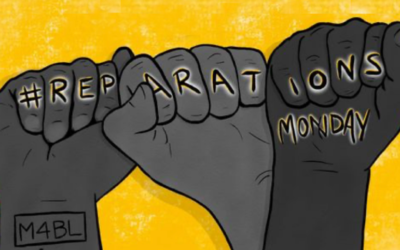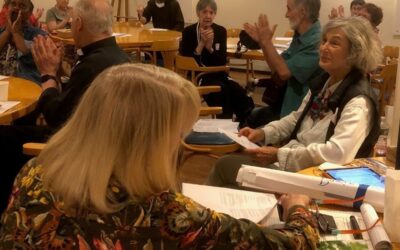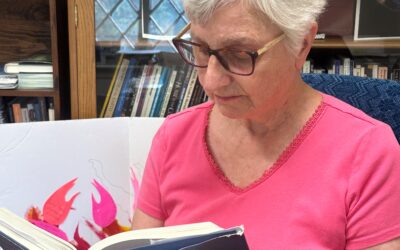By Bill Hurley, Associate

An American Catholic sitting in a pew at Mass one Sunday, heard his pastor preach a homily on the Good Samaritan. Upon leaving Church he asked his priest “Who is my Neighbor?” What follows is a reply, a story I would hope would be preached to all Catholics in America.
A group of Catholics were going down a road toward Washington, DC. It was their intent to ask their elected officials to be generous to those in Ukraine, provide financial aid and develop a means for us to accept their refugees into our country. They felt good about themselves, they were doing God’s work. Is this not what the parable of the Good Samaritan is all about?
Now, as they continued their journey they came across a group of travelers. “Who are you and where are you headed,” asked the Catholics. “We are refugees arriving in America from the East – across the shores of the Atlantic Ocean.”, said the leader. “Wonderful” said the Catholics, “here is some money and here are the addresses of our homes where you may rest. You will know you have arrived in our town when you see the signs “We Support Ukraine.” Each group continued their travels. The Catholic’s felt good. After all, they were now Good Samaritans.
They proceeded toward Washington DC, to do their good deed. But soon they saw another group of travelers coming toward them. As they approached, they became fearful. These travelers were not speaking English. They were singing in Spanish and were poorly dressed. They carried little luggage. Fearful, the Catholics crossed the road hoping to avoid them. Suddenly, one of those travelers shouted, “Hola” then “Can you help us?” in faulty English. The Catholics felt they looked like images they saw on TV and in newspapers. One whispered they must be drug dealers or murderers! Fearful they were about to be robbed they ran. They felt relieved to pass them and the continued on their journey to DC.
Then, for a third time, they saw another traveler. This man was travelling alone. As they approached, they saw he was crying. “What is wrong, and may we help,” they said. The man replied, “many years ago I left a message for generations of Catholics: I give you a new commandment: love one another. As I have loved you, so you should also love one another. This is how all will know that you are my disciples, if you have love for one another.” (John 13, 34-35) As his tears continued, he further replied: “I died for your salvation, I am all merciful, I have cured many of your afflictions and my heart has been opened to you. Yet you denied your friendship to your traveling neighbors from the South.” The man then disappeared.
The Catholic travelers realized this was encounter with Jesus. They made Jesus cry! One said, “What have we done? We must travel back to those we thought were drug dealers and murders. We must ask for their forgiveness.” They did so and almost caught up to them when a government truck arrived and arrested all, for seeking a new and safe life. As the truck drove off, they heard the children cry: is this not America? Should we not be free?”
The Catholic Americans did not proceed to Washington, DC. They returned home sad with the realization they made Jesus cry.
It is not my intent to position one group of refugees over another. It is my intent to point out how many of us base our opinion of others because of media coverage rather than the Word of God. Your thoughts…?





Thanks for this thought-provoking re-telling of a familiar parable in the very real context of our times. How easy it is for us to discriminate among migrants and refugees and to label some groups as more “worthy” than others of a chance for a better life.